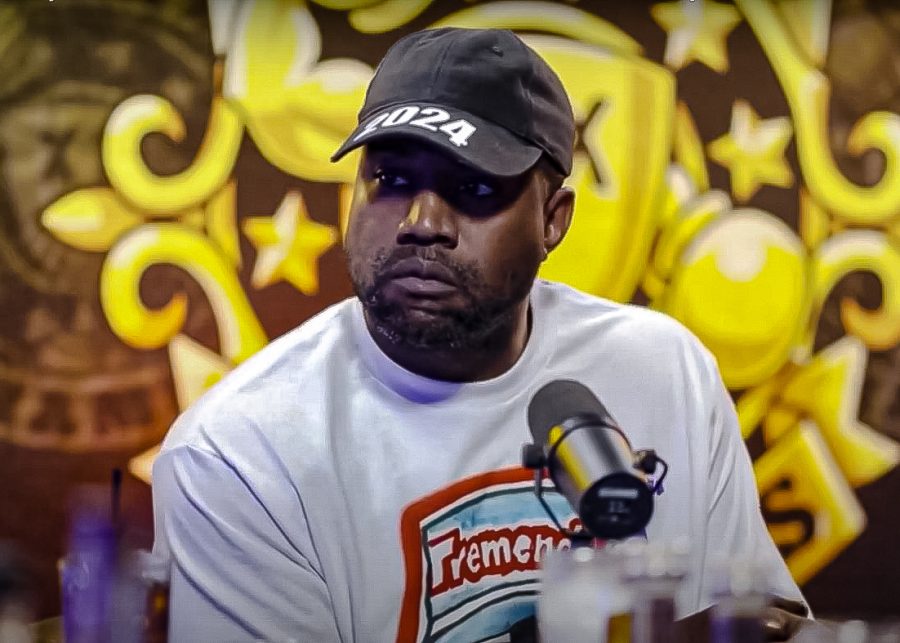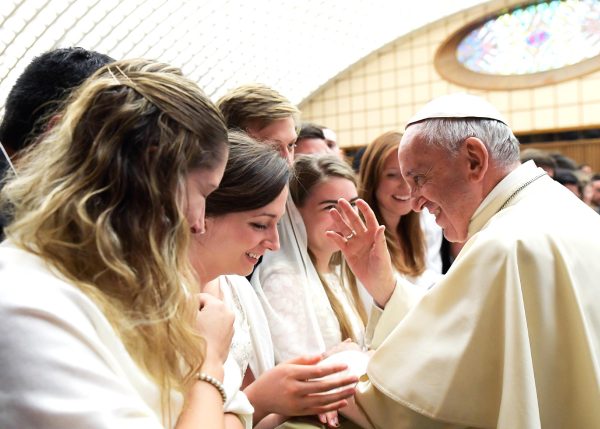Say Nay to Ye
Recently, Kanye West has been using his media presence and influence to make antisemitic statements, including conspiracy theories and stereotypes, that have undoubtedly caused damage to the Jewish community.
Despite this, he remains undeniably popular. Seeing him essentially unaffected after his hateful language rekindles the long-asked question: who — governments, social media platforms or the general public — should hold public figures accountable?
West has a large fanbase. People follow him for many reasons, including interest in his music or shared political beliefs. To some, West’s “unhinged personality” is entertaining and even refreshing. Make no mistake, however: controversial takes that infringe on being racist, sexist and homophobic do not become unproblematic simply because they have received support.
The First Amendment guarantees the freedom of speech to all Americans, no matter their position in society. Everybody is entitled to voice their beliefs, but they are not entitled to say what is on their mind without consequence.
Legally, the government cannot punish individuals spewing hate speech, including West, because it would set a dangerous precedent for the government to restrict other protected rights of its constituents. Doing so would be going against one of the most fundamental rights of the country.
So, who can, and should, hold West accountable, if not America’s government? Zach Chen (II) believes, “Corporations obviously have a lot of power in choosing how celebrities are affected, however, individuals should also have a sense of responsibility in choosing whether actions celebrities take are justified.” West has mainly used Twitter to spread his hateful messages; the platform’s current policy on regulating inappropriate tweets, however, is inadequate for holding users accountable.
Hundreds of millions of tweets are posted every day. While Twitter has both hired workers and created bots to review flagged tweets, it is impossible to accurately survey each one for ill intent and thoroughly analyze its consequences. Indeed, Twitter has removed problematic tweets, but also censored the voices of activists and people of color. Twitter should not infringe on freedom of speech, much less eliminate all objectionable material. Nonetheless, relying solely on platforms is not sufficient. So, if neither government nor corporations have a hand in accountability, then who does?
Vera Jacobson (II) and Rachel Lantsman (II), co-presidents of the Jewish Culture Club, comment on West’s accountability, saying, “I just don’t think he can be held accountable by America. […] But by the people, understanding what’s wrong; I think that’s more apprehendable.”
American individuals must make their own decisions. The reality is that public figures will always be controversial, and individuals must recognize that some actions are intolerable. Boston Latin School Facing History and Senior Capstone teacher Ms. Judi Freeman says, “What kind of stance do you want to take when you know that something a person espouses […] is offensive? We need to address the problem, we need to address things like antisemitism and we need to do it frankly, openly and clearly. We need to address bigotry in all forms.”
Therefore, when consumers of such content choose to separate the art from the artist, they disregard the situation and entertain the idea that there are no consequences for hate speech. Sweeping the situation under the rug allows public figures to maintain their followers, sponsorships and popularity with minimal consequences. Holding celebrities accountable sends a message to everybody about what can and cannot be tolerated.
Ye is merely one of many celebrities that have been caught exercising hateful speech and acting problematically. Celebrities should not be treated any differently than the average person. Failing to hold public figures accountable and continuing to favor them despite their wrongdoings perpetuates a system of complacency. The next time you pick up your phone, understand that you hold immense power. Your words and actions hold great influence, especially on social media, so do not turn a blind eye to what happens in public. It is your decision to handle situations and form opinions with morality and responsibility.







